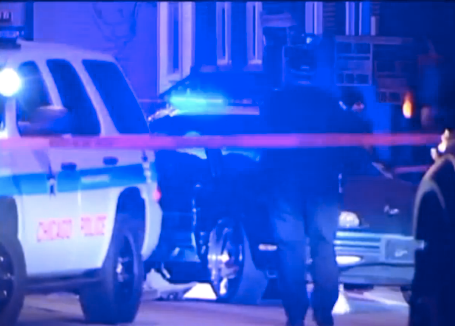On Dec. 1, Chicago police superintendant Garry McCarthy was fired as mayor Rahm Emanuel tried to contain public outrage over what seems to have been a long-term effort to misleadingly portray the police killing of Lacquan McDonald as a justified shooting. This week, an equally galling case of official misconduct in a lesser-known police shooting in the city has led to the resignation of one of Chicago’s top lawyers.
The individual who resigned, senior corporation counsel Jordan Marsh, stepped down on Monday shortly after a judge accused him of lying and hiding evidence in the civil trial of two Chicago police officers who shot at Darius Pinex during a Jan. 7, 2011 traffic stop, killing him. Officers Raoul Mosqueda and Gildardo Sierra told investigators that they had pulled Pinex’s Oldsmobile Aurora over because it matched the police radio description of a car being sought in connection with another shooting—and they later testified to the same effect in a wrongful death lawsuit filed by Pinex’s family in which the city was represented by Marsh.
Here’s the thing: There’s no way the officers heard that description, because it wasn’t broadcast to the area they were driving in, a fact that does not appear to have emerged until after the wrongful death trial. As it happens, a different description of an Oldsmobile Aurora, a description that Mosqueda and Sierra could have heard, did go out on police radio that night as well. However, that description made no mention of a shooting and included a license plate number that did not match Pinex’s car, undermining the officers’ claim that they had good reason to treat him as a suspect in a crime. It was a city witness in the wrongful death trial who disclosed the existence of the call Mosqueda and Sierra could have actually heard. A recording of that call exists, and it was eventually discovered that Marsh had known about the recording but not told the court or opposing counsel about its existence. (It’s still not clear how the officers became aware of the other call, the one they couldn’t have actually heard, about an Oldsmobile Aurora.)
While the jury hearing the wrongful death suit ruled in Mosqueda and Sierra’s favor, the extent of Marsh’s apparent malfeasance did not become fully clear until later, and the judge in the case has now thrown out the verdict and ordered a retrial. And Marsh has resigned. And the city of Chicago’s reputation has taken another major hit.
For more on the whole story, you can read the Chicago Tribune’s thorough coverage here.
This post has been updated for clarity.
